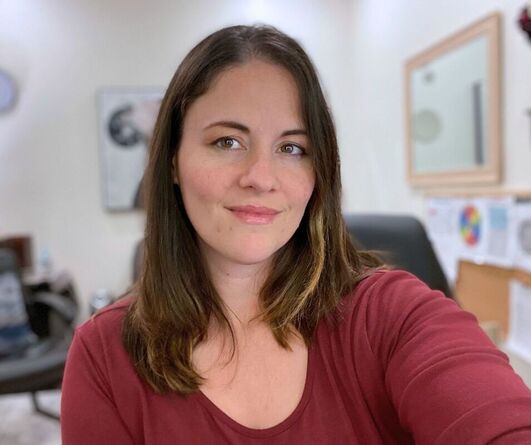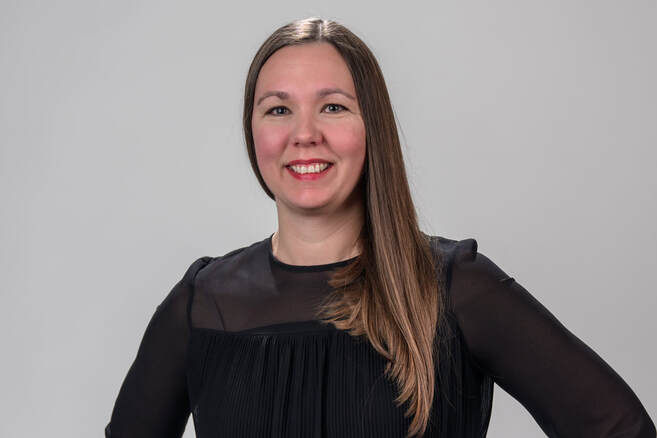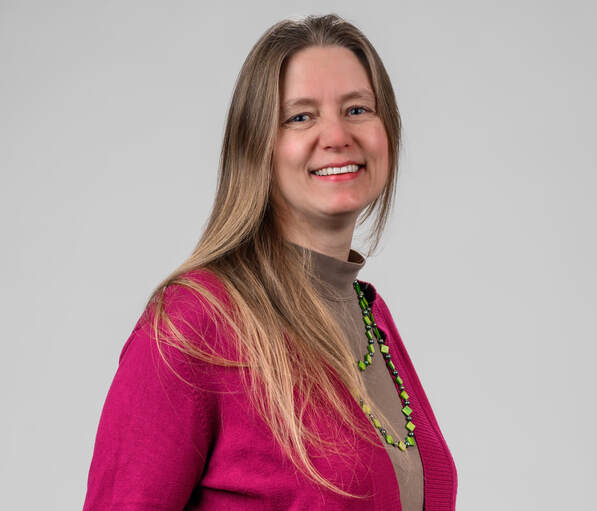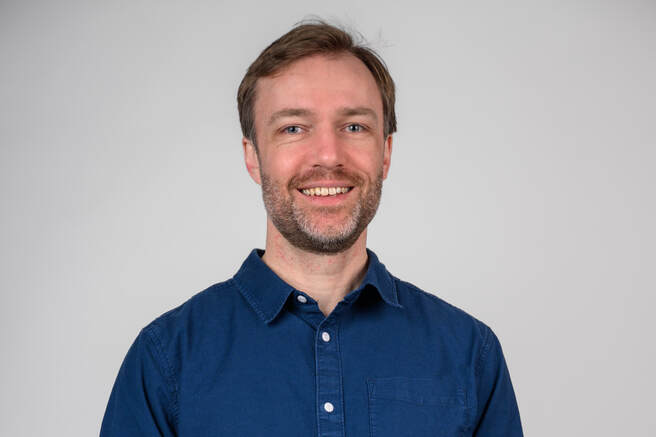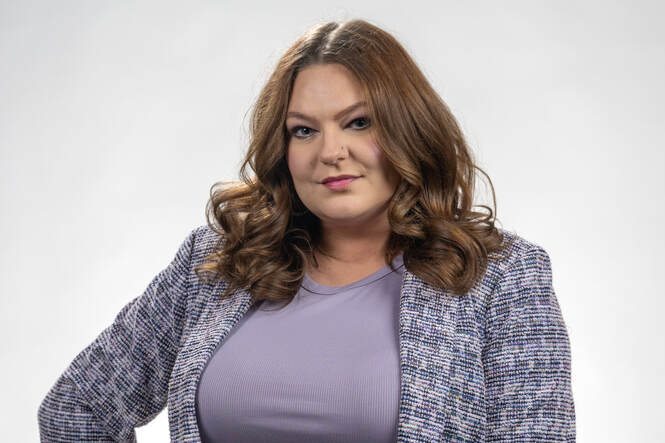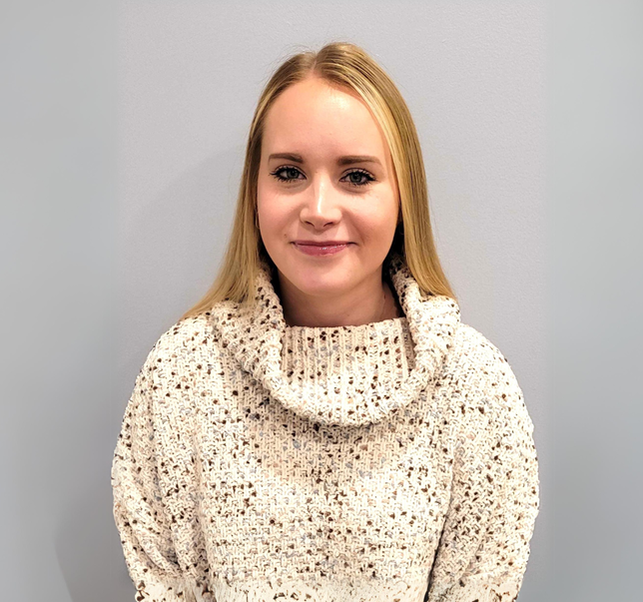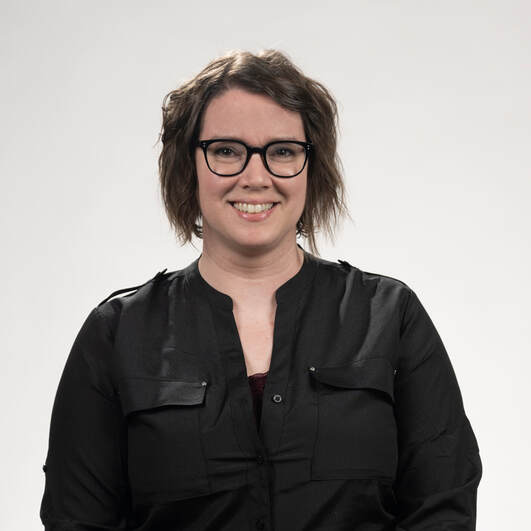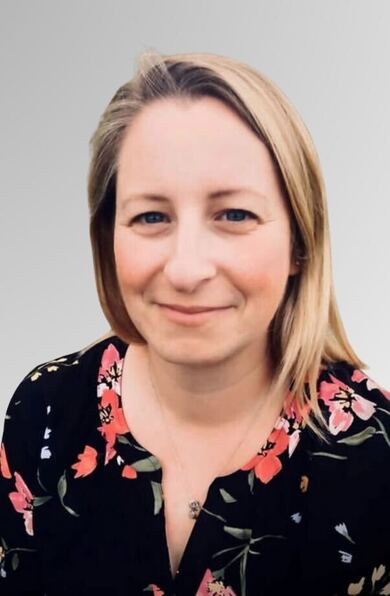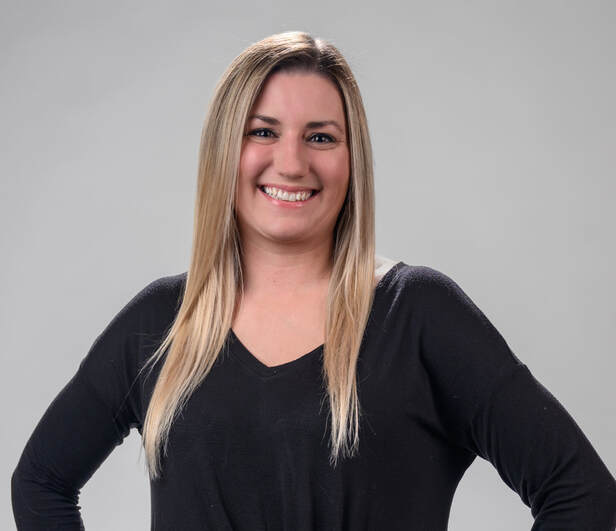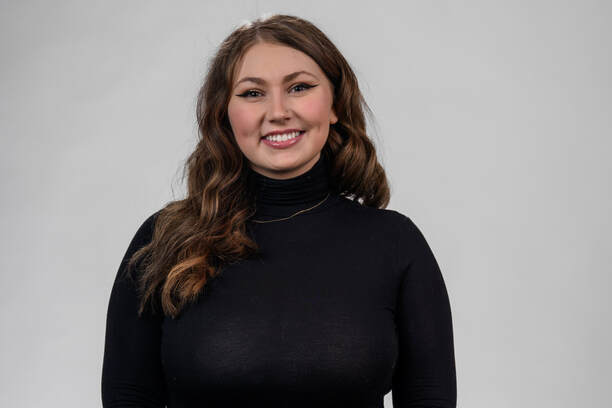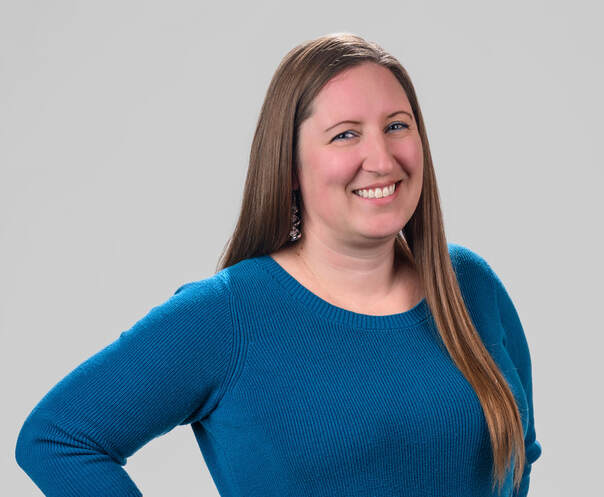Linda Kelly, MSW, RSW
CEO, Registered Social Worker, Psychotherapist
Question: What are some traits that you believe make a good therapist?
"Humility. To have made enough mistakes to understand the whys of what we, as human beings, do. Why we feel what we feel, and what motivates us to keep pushing forward no matter what.
Warmth. Being down to earth. Humour, because let's face it, sometimes life is bewildering and frustrating and insane, and laughter helps. It always helps.
I've always felt that to be a good therapist, you have to be genuine. You must be authentic and real if you expect the person in front of you to be real with you too. It is when we level with one another that true change can happen."
Kristen Sohlman, MACP, RP
Registered Psychotherapist
Question: What made you get into this field?
Answer: "I believe that how you live your life is who you become. I made a decision to become a psychotherapist. I also made a conscious decision to do what I love and to love what I do. I like people and love advocating for others. I have chosen who I want to be through my actions, and psychotherapy represents this for me."
Kristen Arntzen, MSW, RSW
Registered Social Worker
Question: If you could choose one quote about your outlook on counselling, what would it be and why?
Answer: "I like to say, “You can’t scare me, and you can’t offend me.” I have worked with people who are incarcerated, involved in the child welfare system, and people struggling with addiction – in addition to mental health concerns. When people come to work with me it is an awesome opportunity - and responsibility - to trust one another. This work with young and old has strengthened my love of helping and learning from others."
Answer: "I like to say, “You can’t scare me, and you can’t offend me.” I have worked with people who are incarcerated, involved in the child welfare system, and people struggling with addiction – in addition to mental health concerns. When people come to work with me it is an awesome opportunity - and responsibility - to trust one another. This work with young and old has strengthened my love of helping and learning from others."
Noelta Thayil RSW, MSW
Registered Social Worker
Question: What is your approach to therapy?
Answer: "I draw from a variety of approaches including Cognitive behavioural therapy, solution focused and mindfulness-based approaches. My heart of practice has been person-centered or Humanistic therapy which places the highest regard when it comes to acceptance, empathy and motivation to help clients realize their own potential. I usually ask my clients about their goals and discussing the treatment options that are available. Then we work together with the aim for best course of action, this allows them to be an active participant in decision making process. I usually give importance to feedback as it allows me to adjust my approach based on their unique situations."
Answer: "I draw from a variety of approaches including Cognitive behavioural therapy, solution focused and mindfulness-based approaches. My heart of practice has been person-centered or Humanistic therapy which places the highest regard when it comes to acceptance, empathy and motivation to help clients realize their own potential. I usually ask my clients about their goals and discussing the treatment options that are available. Then we work together with the aim for best course of action, this allows them to be an active participant in decision making process. I usually give importance to feedback as it allows me to adjust my approach based on their unique situations."
Andrew Bohonis, MACP, RP (Qualifying)
Question: How do you think therapy can help people?
Answer: "I think it is rare to have a relationship of the quality that I see in the counselling relationship. In that sense I think therapy can supplement a lack of needed social support. I see it as another mind and set of senses oriented in partnership to work through whatever is obstructing us. Bringing attention to what we’re unaware of is a big part of that. It is also a rare person who is willing to work through research to understand effective ways to address their problems, and who is also motivated and capable to implement these things without support. So therapy can help there. When a person is at odds with the prevailing winds of their culture or close relationships, I think therapy can be a sheltered bay and validating reprieve. It is also a place to do the work to help withstand the storms again, and learn to tack into the wind. Patch the sails, train the crew, rebuild the rudder, map the route."
Answer: "I think it is rare to have a relationship of the quality that I see in the counselling relationship. In that sense I think therapy can supplement a lack of needed social support. I see it as another mind and set of senses oriented in partnership to work through whatever is obstructing us. Bringing attention to what we’re unaware of is a big part of that. It is also a rare person who is willing to work through research to understand effective ways to address their problems, and who is also motivated and capable to implement these things without support. So therapy can help there. When a person is at odds with the prevailing winds of their culture or close relationships, I think therapy can be a sheltered bay and validating reprieve. It is also a place to do the work to help withstand the storms again, and learn to tack into the wind. Patch the sails, train the crew, rebuild the rudder, map the route."
Alisha Holbik, MACP, RP
Question: What tools do you try and use in your daily life to manage your own mental health and wellness?
Answer: "When it comes to implementing tools into my daily life, I take an eclectic approach. I think it is important to keep a repertoire of tools that are easily accessible. The variety of tools I use are based on the five domains of self-care (physical, social, mental, spiritual, and emotional). With practice, you can become self-aware of an area that may feel out of balance and redirect your focus where it needs to go. The tools I use to help promote and manage my mental health are a gratitude journal and a breathing/meditation app. Nature can be an essential tool by allowing your mind to reach a state of tranquility when engulfed in its vast beauty. I find that a brief check-in with yourself throughout the day can go a long way. Recharging your batteries doesn’t have to be a tedious process. Deep breathing or simply enjoying a cup of your favorite tea, can provide those moments of reprieve when the demands of daily life become overwhelming."
Answer: "When it comes to implementing tools into my daily life, I take an eclectic approach. I think it is important to keep a repertoire of tools that are easily accessible. The variety of tools I use are based on the five domains of self-care (physical, social, mental, spiritual, and emotional). With practice, you can become self-aware of an area that may feel out of balance and redirect your focus where it needs to go. The tools I use to help promote and manage my mental health are a gratitude journal and a breathing/meditation app. Nature can be an essential tool by allowing your mind to reach a state of tranquility when engulfed in its vast beauty. I find that a brief check-in with yourself throughout the day can go a long way. Recharging your batteries doesn’t have to be a tedious process. Deep breathing or simply enjoying a cup of your favorite tea, can provide those moments of reprieve when the demands of daily life become overwhelming."
Emma Abbott, HBSW, RSW
Kate Lachance, MSW, RSW
Registered Social Worker
Question: What's one thing you've learnt from being in the helping field?
Answer: "Being in the helping field has taught me the value of being compassionate with ourselves and each other: we all have a unique story to tell and we all need to be seen and heard for who we are. Our social relationships have a tremendous impact on our personal narratives. Our earliest relationships can shape how we perceive the world, other people, ourselves, and can, therefore, become either nourishing or detrimental to our sense of self and well-being. Our stories, however, are not absolute. Who we are is a narrative that is up to each and every one of us to tell. Stories can be rewritten, re-framed and reinterpreted as we learn, grow or heal with self-compassion."
Answer: "Being in the helping field has taught me the value of being compassionate with ourselves and each other: we all have a unique story to tell and we all need to be seen and heard for who we are. Our social relationships have a tremendous impact on our personal narratives. Our earliest relationships can shape how we perceive the world, other people, ourselves, and can, therefore, become either nourishing or detrimental to our sense of self and well-being. Our stories, however, are not absolute. Who we are is a narrative that is up to each and every one of us to tell. Stories can be rewritten, re-framed and reinterpreted as we learn, grow or heal with self-compassion."
Margo Ayoub, MSW, RSW
Registered Social Worker
Question: What are the areas of specialized interests that you have?
Answer: "My areas of interest include grief and loss, addictions, and mental health. I have worked throughout Northern Ontario to support grieving families of MMIWG, and in clinical settings working with clients in the areas of mental health and addiction. Often, people dealing with issues such as these can feel isolated and alone in their struggle. Using a trauma informed and client centered approach, I strive to provide a culturally safe and compassionate environment so my clients feel supported as they explore their issues and challenges."
Answer: "My areas of interest include grief and loss, addictions, and mental health. I have worked throughout Northern Ontario to support grieving families of MMIWG, and in clinical settings working with clients in the areas of mental health and addiction. Often, people dealing with issues such as these can feel isolated and alone in their struggle. Using a trauma informed and client centered approach, I strive to provide a culturally safe and compassionate environment so my clients feel supported as they explore their issues and challenges."
Amanda DeCorte - Office Manager
Question: What do you love most about your role as the Manager?
Answer: "What I love most about my job is the people. I love interacting with all different types of people from different backgrounds and cultures. I am passionate about helping people access the help that they need. I enjoy being a welcoming face during the difficult times and doing my part in helping people be better versions of themselves everyday. I love working with a diverse team of amazing people that work everyday to end the stigma around mental health."
Answer: "What I love most about my job is the people. I love interacting with all different types of people from different backgrounds and cultures. I am passionate about helping people access the help that they need. I enjoy being a welcoming face during the difficult times and doing my part in helping people be better versions of themselves everyday. I love working with a diverse team of amazing people that work everyday to end the stigma around mental health."
Jessica Hayes - Office Assistant
Question: What do you value most about your current position at Kelly Mental Health?
Answer: "Mental health has always been something I have been passionate about and with my position, I am able to speak with people about their needs and help place them with professionals who will best fit those needs. I enjoy being able to play a role in all of the amazing things that KMH does for the community and I am excited to continue working with such a wonderful group of people to spread goodness in Thunder Bay!"
Answer: "Mental health has always been something I have been passionate about and with my position, I am able to speak with people about their needs and help place them with professionals who will best fit those needs. I enjoy being able to play a role in all of the amazing things that KMH does for the community and I am excited to continue working with such a wonderful group of people to spread goodness in Thunder Bay!"
Angela Pajamaki - Accounts Receivable Specialist
Question: What is one thing you find fulfilling about working in the Mental Health Industry?
Answer: "The opportunity to be an agent of change. The mental health industry has a wide range of opportunities to work with various populations, such as private practice, substance abuse, mental health research, education or corporate entities to name a few. But at best, when you work in mental health, you do work that makes a person's life better."
Professional Photography by PICme Productions
Visit usOffice Hours:
Monday & Friday 9:00am - 5:00pm Tues, Wed, & Thursday 9:00am - 8:00pm Please call or book your appointment online |
|
© COPYRIGHT. ALL RIGHTS RESERVED. WEB DESIGN BY KMH


